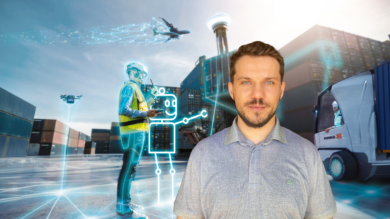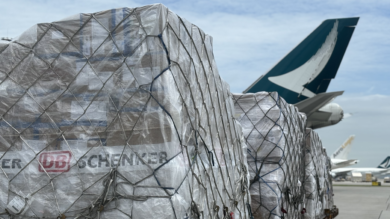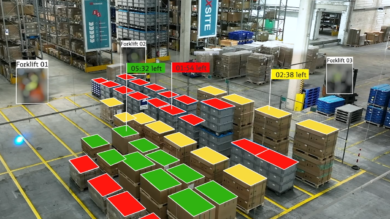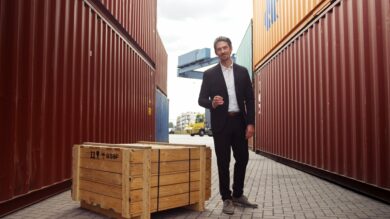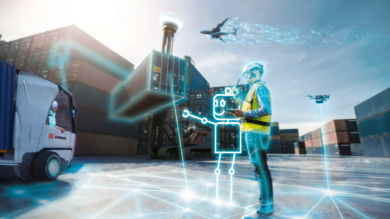How can a cargo airline in general become more sustainable? What are levers to reduce kerosene as well as CO2? And what can everyone do to make air freight more sustainable? In this interview Logistics Matters spoke to Dorothea von Boxberg, CEO at Lufthansa Cargo, about sustainability in air freight, its importance as well as challenges and opportunities.
Dorothea von Boxberg is an internationally recognized expert for air freight logistics, who has worked in different management roles for Boston Consulting, Star Alliance and Lufthansa. In March 2021, she became Chairperson of the Executive Board and Chief Executive Officer as well as Chief Financal Officer of Lufthansa Cargo.

Logistics Matters: “What is your position on the subject of sustainability? How does that fit in at all with a cargo airline?”
Dorothea von Boxberg: “Air transport connects people, countries and cultures around the world. Its economic importance is enormous, it drives employment and it ensures the fast and reliable flow of goods. At the same time, it has undesirable effects on climate and the environment. For Lufthansa Cargo, this goes hand in hand with the responsibility to reduce the environmental impact of our business activities to the unavoidable minimum – in the air and on the ground. Lufthansa Cargo has long been working to keep its own carbon footprint as small as possible. Over the last 25 years, we already achieved a CO₂ reduction of 52% by constantly investing in a modern fleet. The Lufthansa Group has defined demanding CO2 reduction targets that we as Lufthansa Cargo fully support: the carbon footprint should be halved by 2030 compared with 2019 – we are working to achieve this milestone even earlier. Carbon neutrality is our shared objective in the long-run. We have committed to supporting the United Nations’ Sustainable Development Goals, of which “Climate Action” is one.”
Logistics Matters: “What exactly are you working on at the moment?”
Dorothea von Boxberg: “The biggest levers you have as an airline are to reduce kerosene and to replace kerosene with alternative fuels. Investment in modern fleet is decisive to reduce kerosene. By the end of the year, we will have a pure B777 fleet. That is the most fuel-efficient cargo fleet you can have with the best environmental balance. We also have a long history of working on ways to reduce fuel in operations e.g. with landing approach procedures that reduce fuel burn.
In order to reduce the carbon footprint of the fleet even further, we will also equip all B777Fs with the new Sharkskin technology from 2022. The surface coating, which resembles the structure of sharkskin, reduces the frictional resistance of our freighters in the air and thus reduces fuel consumption. In the Lufthansa Cargo fleet, this will enable annual savings of around 3,700 tons of kerosene and almost 11,700 tons of CO2 emissions.
For an airline weight reduction is key to reduce CO2 emissions. Since last year we only use lightweight containers.
For the fuel we still need to burn, Lufthansa Cargo is committed to researching and using alternative, sustainable fuels. We are very proud of our cooperation with DB Schenker in the area of Sustainable Aviation Fuel (SAF): since April 2021, we have been able to jointly offer the first regular weekly CO2-neutral cargo rotation between Frankfurt and Shanghai.”
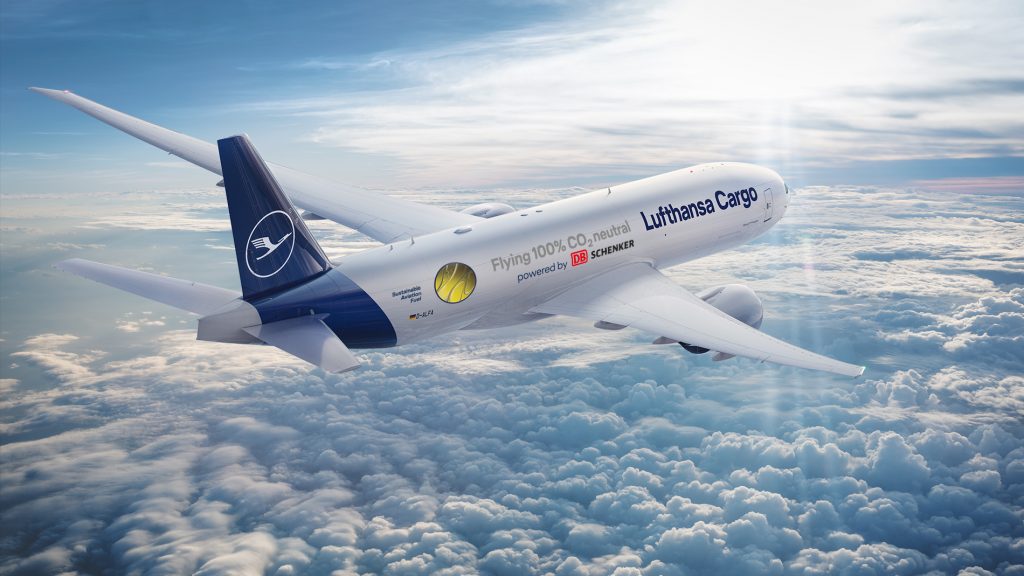
Logistics Matters: “What advice would you give to other companies in the logistics sector that want to anchor the topic of sustainability in their actions?”
Dorothea von Boxberg: “The paths to sustainable entrepreneurship can of course look very different. I would say that the first step should be a thorough analysis: where do you generate greenhouse gases, waste, etc.? Where can you reduce your carbon footprint? Which small measures can be implemented particularly quickly, which ones require more effort? The next step would be to define goals or a strategy against which you, as a company, will be measured in the future.
I think making milestones and successes visible is important for employees as well as for customers and other players in our industry. I also believe it is very helpful and important to team up with experts or other companies on certain topics to develop more clout. Involving your own customers can also be very helpful and, in turn, have a positive impact on their efforts in the area of sustainable business management. Above all, however, it is important to support the topic of sustainability with appropriate human and financial resources and to really think long-term.”
Published: May 2021




